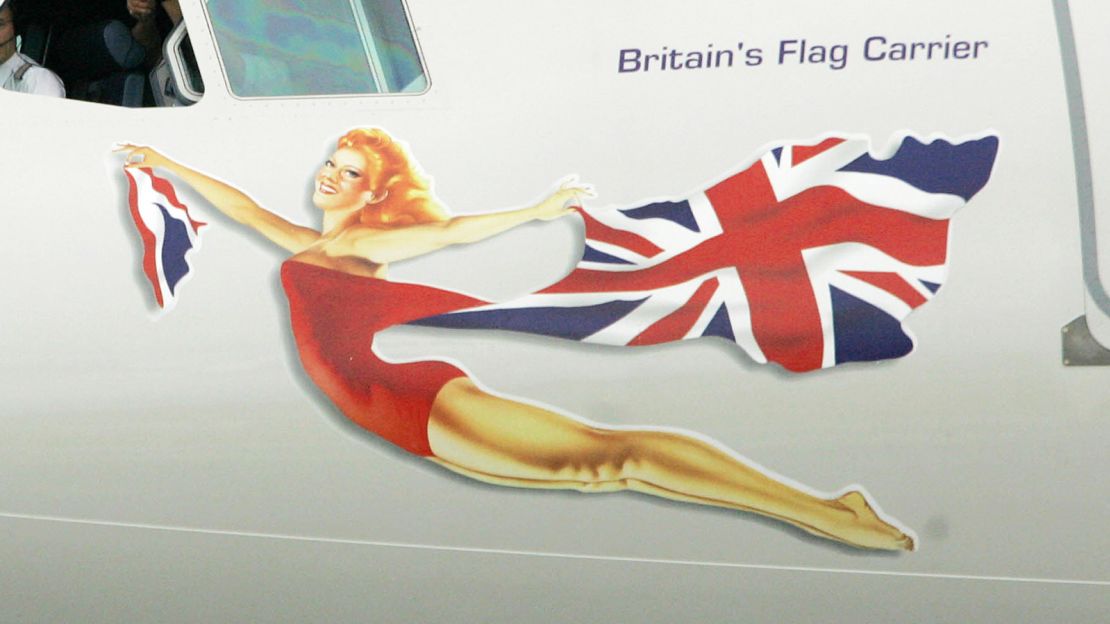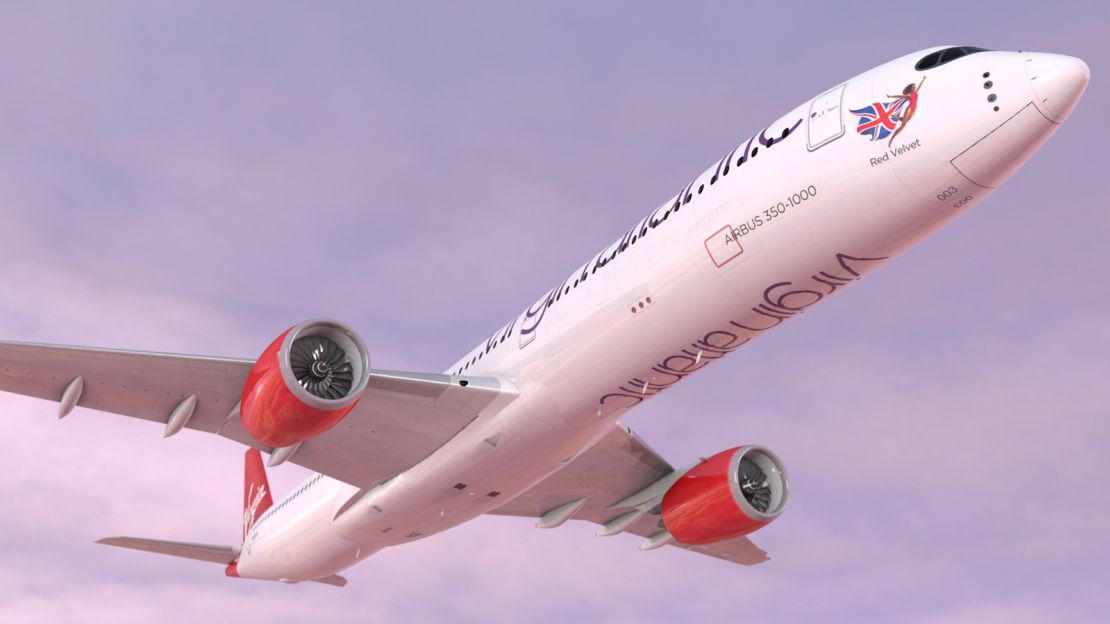Virgin Atlantic is ditching its famous emblem after 35 years.
The British airline has announced it’s retiring the Flying Lady in favor of five diverse “flying icons” that more accurately “represent its customers and workforce.”
A black woman and a gay man in rainbow lycra are among the new faces making their debut on four of its new Airbus A350-1000 fleet, due to be unveiled later this year.
According to Virgin Atlantic, this is the first time an airline has ever used male figureheads on its fleet.
Scantily draped in a red bodysuit that unfurls into a Union Jack, the Flying Lady was inspired by the kitsch “pin-up girls” style of artists such as the 1940s Peruvian painter Alberto Vargas.
Changing faces

The decision to revamp the emblem comes after the UK-based company’s recent pledge to reach a 50/50 gender balance in leadership roles as well as a 12% black, Asian and minority ethnic group representation across the company by 2022.
Virgin Atlantic has also updated its uniform and makeup policy so that female cabin crew are no longer required to wear makeup during flights.
“The saying goes ‘You can’t be what you can’t see’ and that has never been truer than the aviation industry’s glamorous image in the past,” says Nikki Humphrey, SVP of People at Virgin Atlantic.
“We have been working for a number of years to tackle our gender pay gap, create an inclusive workplace and increase the diversity of our workforce, through the development of our Springboard program for women, as well as the launch of engineering apprenticeships.
“By introducing our new flying icons I hope it encourages people from all backgrounds to feel at home flying with us, but also working with us.”
Diverse icons

The new fleet will also be given more modern names – although it seems there are no plans to change the monikers of existing planes such as Hot Lips and Barbarella.
While the campaign has been welcomed, there has been some criticism that the new icons might also reinforce stereotypes.
For example, the decision to place the black male icon on a plane named “Cool Runner” has raised eyebrows, although the airline was quoted in the Guardian as saying that this was purely a coincidence.
Determined to put its raunchy-but-retrogade reputation behind them, Virgin Atlantic is active this year in the UK’s government charters for Women in Aviation and Aerospace and Women in Hospitality, Travel and Leisure.
It also claims that in its latest brand campaign it’s become the first company to show a same-sex couple in its ad imagery in India.




